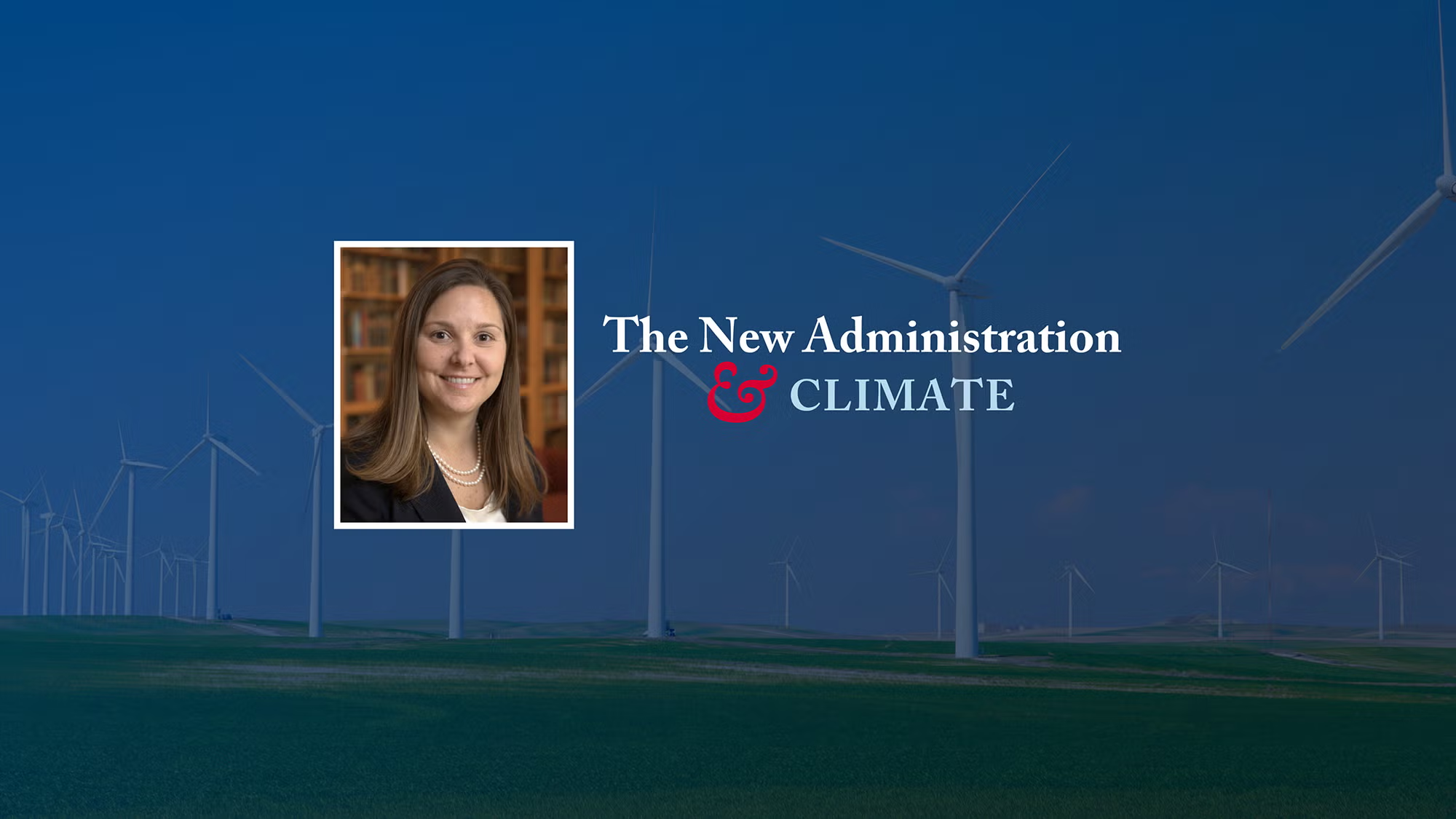The inauguration of a new U.S. president presents an inflection point, a moment of possibility just before a candidate’s election promises meet the realities of governing. As the U.S. enters the second Trump administration, SFS faculty offer their thoughts on how the 47th president’s statements during the campaign, policies during his first term, and nominations and appointments announced thus far might impact different regions and issue areas around the world. The views expressed are the views of individual SFS faculty and not the views of SFS.
In conversation with SFS Professor Joanna Lewis, Provost’s Distinguished Associate Professor of Energy and Environment and director of the Science, Technology and International Affairs Program (STIA), we dive into key issues to watch for in the Trump administration’s potential actions related to climate change and environmental policy.
What did Donald Trump, the candidate, promise regarding climate change?
Trump, the candidate, promised to withdraw the United States from the Paris Agreement, as he did previously, and to promote the development of fossil energy over renewable energy. There was no question that he would follow through on both of these things, though some ambiguity in the execution and broader impacts.
“Withdrawing the United States from the Paris Agreement and revoking our climate finance commitments will almost certainly have disastrous impacts globally.”
Professor Joanna Lewis
How do you see Trump’s policies impacting U.S. and global efforts to mitigate the worst impacts of climate change? Based on your expertise and experience in this area, are you optimistic or pessimistic about the policy direction about climate change over the next four years?
President Trump’s Day One executive orders (EO’s) were the start of the actions against existing U.S. climate action and clean energy industries. They included Unleashing American Energy, focused on expanding oil and gas drilling, including ANWR, and eliminating subsidies for clean energy under the Inflation Reduction Act—but also targeting things like environmental justice; and Declaring a National Energy Emergency, focused on expanding energy exploration and infrastructure and making sure that the Endangered Species Act and Marine Mammal Protection Act do not get in the way. There was a separate EO focused on wind power, which called for no new offshore wind leases and a temporary freeze on onshore on federal land. And then there was the EO misleadingly called Putting America First in International Environmental Agreements, which directs the U.S. ambassador to the UN to immediately submit written formal notification of the U.S.’s withdrawal from the Paris Agreement while also revoking any climate finance commitments made by the United States. Over the past week, we’ve seen additional actions to freeze climate funding across the board.
All of these actions will have immediate, adverse impacts on U.S. clean energy industries and climate-related policy and research. The Inflation Reduction Act spurred an estimated $493 billion in new investments in clean energy over the past two years, including numerous new manufacturing facilities and jobs, many of which are directly benefiting Republican-leaning states (led by Tennessee, Kentucky and Nevada). The removal of Inflation Reduction Act subsidies will make it difficult, if not impossible, for the U.S. to try to catch up to China, which currently leads in the manufacturing of clean energy technologies globally.
Withdrawing the United States from the Paris Agreement and revoking our climate finance commitments will almost certainly have disastrous impacts globally. Last year was the warmest year in the modern record (since 1850), with global temperatures exceeding the pre-industrial average by 2.63°F. This is linked to 27 confirmed climate-related disaster events with losses exceeding $1 billion in the United States alone, including hurricanes, droughts, heat waves, flooding and other severe weather events. The rest of the world fared far worse, from the Chilean wildfires to flooding in the Sahara Desert. Climate finance is key to building resilience globally, as well as supporting the low carbon transition.
